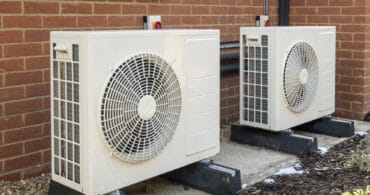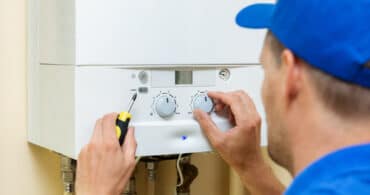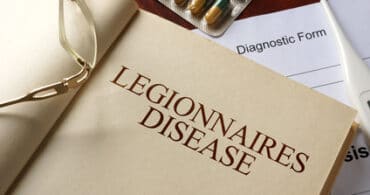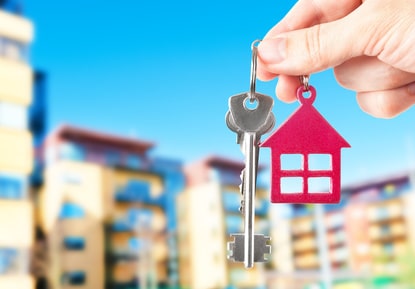Tips for Preparing Your Property for a New Tenant
A landlord’s life is a busy one. So, if you are about to prepare your property for a new tenant, especially if it’s something that’s new to you, you’ll need as much helpful guidance as possible. From safety checks to regulatory compliance, from cleaning and property maintenance to important welcoming touches, read on for our top expert tips.
A landlord’s life is a busy one. So if you are about to prepare your property for a new tenant, especially if it’s something that’s new to you, read on for our top residential property management experts’ tips.
Cleaning
If your property was previously tenanted then it should have been returned to you in the same condition it was at the start of that tenancy. In other words, if it had been professionally cleaned, then the departing tenant should have had it professionally cleaned before they left. If they didn’t, then you may be within your rights to withhold sufficient funds from the deposit to cover your cleaning costs.
Even if the property wasn’t previously tenanted, a deep clean is vital as a new tenancy commences, especially considering the pandemic situation. If carpets are soiled or stained, consider having them expertly cleaned. If the stains were the fault of the most recent tenant and you have evidence to prove as such, then you may be able to make deductions from the deposit to cover the cost of dealing with them. It is also advisable to hire the services of a professional oven cleaner.
There is nothing worse for a new tenant than moving in only to find the property isn’t as clean as they would expect. Clearing away rubbish is also an important element of cleaning. Make certain the bins are emptied and no waste sacks are left outside the property.
Property maintenance
Residential property management agents will advise you that your check-out report from the last tenancy will provide a list of any maintenance tasks that need to be dealt with before a new tenant can move in. Typical tasks include:
- Repainting
- Filling holes, chips or cracks
- Re-grouting
- Replacing roof tiles
- Fixing or replacing guttering
- Dealing with dripping taps
- Replacing shower heads
- Generally ensuring the property is in a safe, habitable condition
You’ll need to undertake checks to ensure all the fixtures, fittings and appliances are in good working order, repairing or replacing anything that is damaged or not fully functional.
In particular, check for security flaws such as poorly functioning or broken locks. You may wish to change the locks, which many landlords do between tenancies. Always change the alarm code if you have one, and be certain that you received all the keys back from the previous tenant. And do check under the front door mat or plant pot, just in case!
If any damages can be attributed to a previous tenant then again, you should be able to make deductions from the deposit.
You will also benefit from reading up on the Fair Wear and Tear and betterment/apportionment rules. These are a vital part of residential property management and will help you assess whether any damage is in excess of fair wear and tear.
The Homes (Fitness for Human Habitation) Act 2018 requires landlords to make sure their privately rented accommodation is fit for human habitation. Responsibilities include:
- Ensuring there are no serious instances of damp or mould growth;
- Making sure there is no exposure to hazardous or toxic substances, or to pests;
- Ensuring there is a sufficient supply of hot and cold water free from contamination
- Guaranteeing adequate sanitation and drainage, and
- Providing sufficient facilities for food storage and preparation.
There are many more factors to comply with, so it is vital that you familiarise yourself with the legislation.
Safety checks
There is a raft of safety related regulations that you must adhere to as a landlord.
Under the Gas Safety (Installation and Use) Regulations 1998, all gas appliances in privately rented properties must be safety checked every year by a Gas Safe registered engineer. A valid Landlord Gas Safety Certificate (CP12) must be supplied to the new tenant.
The Electrical Safety Standards in the Private Rented Sector (England) Regulations 2020 require residential landlords in England to maintain their properties to the specified standards. An inspection by a qualified and competent person must be carried out every five years and an Electrical Installation Condition Report (EICR) supplied to the incoming tenant.
The Smoke and Carbon Monoxide Alarm (England) Regulations 2015 made it mandatory for landlords of private rented properties to install smoke alarms on every storey used as living accommodation, and to place carbon monoxide detectors in every room where there is a solid fuel-burning appliance. These alarms must be tested before a tenant moves in to ensure they are fully functional. It is recommended that ten-year long life tamper-proof alarms are fitted so that tenants cannot remove the batteries.
The Regulatory Reform (Fire Safety) Order 2005 England and Wales places numerous duties on landlords, including the need to carry out fire risk assessments in the common areas of sheltered accommodation, flats, maisonettes and HMOs.
The Furniture & Furnishings (Fire) (Safety) Regulations 1988 (as amended) set out levels of fire resistance for domestic upholstered furniture, furnishings and other upholstered products. It is your responsibility to ensure all upholstered furniture is compliant with the regulations and carries all the necessary fire safety labels. Failure to do so would constitute an offence under the Consumer Protection Act 1987.
Check-in and inventory
A vital part of residential property management is organising a check-in and inventory so that you have a clear, fully documented picture of how the property is condition and cleanliness wise at the start of the tenancy, and a full inventory of what you’ve supplied.
Be sure to let the new tenant know the time limit for checking the report and making any comments. It is important to invite comments so that the report is unbiased. If you need to make a claim against the tenant’s deposit at the end of the tenancy, then you will need the very best evidence possible in order to be successful.
Welcoming your tenants
A warmly welcomed tenant is generally a good tenant, and that’s the type you want. Here are a few softer touches you can make to help get your landlord-tenant relationship off to the very best start:
- Appliance manuals – leave operation instructions alongside all the appliances and take time to demonstrate any appliances that are particularly complex.
- How to rent guide – this government guide MUST be provided to all new tenants. It outlines their rights and responsibilities. Without providing this guide you will not be able to serve a Section 21 eviction notice. Send it by email so you have a record, or ask the tenant to sign for it. It really is of exceptional importance.
- Household guide – put together a booklet packed with useful information for the tenant. Include things like waste collection days; how to use any safety equipment such as fire extinguishers; emergency contact details; useful local contacts such as doctors, dentists, opticians, dry cleaners, post office, takeaways, shoe repairs, taxi services, etc.
- Make a gesture – a bouquet of flowers or a bottle of wine greeting your new tenant will instantly help them feel at home.
Residential property management – the easier way
If you would rather not have to shoulder the burden of all these landlord responsibilities, or you simply don’t have time and have been thinking, “Who can I trust to manage my property?”, there is a solution. And it’s one that brings with it a guarantee that your rent will be paid every month, without fail, even during void periods.
The homes2let rent guarantee scheme takes away all of the hassle of managing your property, maximising your earnings and reducing your workload. If you’re wondering, “How can I let my property minus all the headaches?” then this could well be the solution you’ve been looking for. Why not take a look at what our scheme has to offer, then get in touch to discuss how we can make everything so much easier for you?
Related Insights

Heat Source Pump Grants Coming Soon for Landlords
As confirmed in the recent Autumn 2021 Budget, landlords have been included in the government’s heat source pump grant scheme, which will provide access to grants of £5,000 to help replace gas boilers with low-carbon air or ground source heat pumps from April 2022.

Boiler Breakdown Cover: A Guide for Landlords
One of the most costly and time consuming issues for any landlord has to be dealing with boiler callouts. One way of avoiding surprise costs and all the hassle associated with boiler repairs is to take out landlord boiler breakdown cover. Here’s how it works, what it includes, what it doesn’t include, and what to consider when arranging cover.

A Landlord’s Guide to Protecting Tenants Against Legionnaire’s Disease
All landlords have legal responsibilities to ensure the health and safety of their tenants. Under these responsibilities, Legionnaire’s disease ranks as one of the most significant health concerns that must be considered when letting to tenants. Here’s why it’s vital to be aware of what Legionnaire’s disease is, why it is harmful, and how to check for and prevent it.







